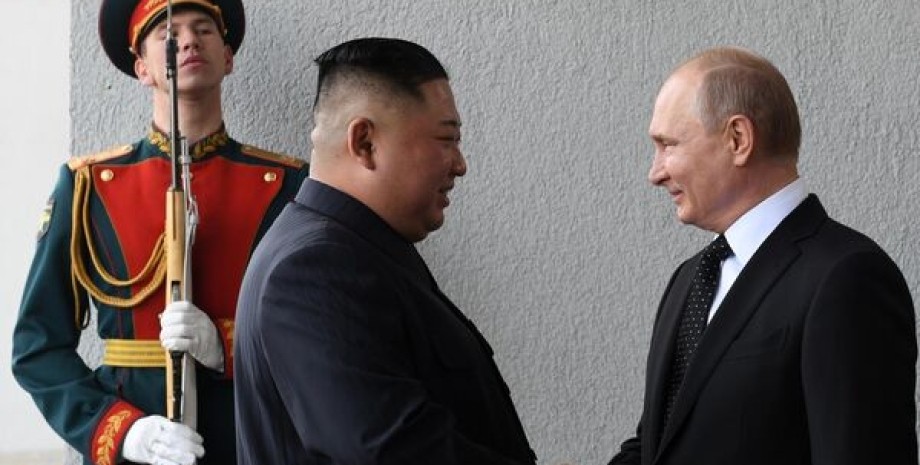
Both dictators are likely to take this visit to promise public support once again by rejecting the US attempts to isolate Putin through his invasion of Ukraine and Kim through his desire for nuclear weapons and ballistic missiles. About it writes The Washington Post.
The visit will also emphasize the durability of the autocratic leadership in both countries: Putin last visited North Korea 24 years ago, shortly after he became president for the first time when Kim Jong Ill, the father of the current leader, led the country. The visit was reported by Russian and North Korean media.
Putin's trip will be a response to Kima's visit to the Far East of Russia last September, when the North Korean leader called his country's relations with Russia his main priority and promised to support Moscow's "sacred struggle" against Ukraine. Then Kim Jong -in arrived on a train to the Amur region. Interestingly, on the road to Kim Jong -in Putin will visit Yakutsk, where he has not been since 2014. It is from there that he will fly to the DPRK.
Although two leaders have become closer in recent years, their steps are the result of short -term need for each other because of convenience, not a formal, strong union, especially given their complex bilateral history, experts say. "There is too much mutual distrust between the two countries. The current improvement of their relationship is due to situational circumstances," said Andrey Lankov, an ancient researcher of Russian-northern Core and correction at the University of Kukmin in Seoul.
The White House has repeatedly accused North Korea for sending equipment and ammunition to replenishment in stocks for war in Ukraine, including ballistic missiles and rocket launchers.
It is believed that North Korea has a large stock of outdated artillery shells and missiles that will be compatible with Soviet and Russian weapons systems used for attacks in Ukrainian cities, as well as production facilities that will help Russia to maintain a high level of ammunition, as the Kremlin seeks to expand your own production. Such dynamics gave Kim a rare variable card.
And this is a reversal in their relations in view of the history of North Korea's military dependence on the Soviet Union, in particular with the support of the USSR invasion to the south, which provoked the Korean war of 1950-53. From the time of Kim's visit to Russia in September last year, North Korea was believed to have exported about 5 million cartridges to Russia, Bloomberg News said South Korea Defense Minister. Russia also needs labor that can also be provided by North Korea.
Russia has long been using North Korean workers as a cheap and reliable source of labor. As of last year, it was believed that thousands of North Koreans are still in Russia in violation of the UN sanctions, which require all North Korea workers abroad to return home by the end of 2019.
Russia used its veto in the UN Security Council in March to neutralize the ancient sanctions regime, designed to restrain and slow down the development of Pyongyang of its nuclear arsenal, with Russian officials accusing the West of "straightening" North Korea. According to some analysts, Russia can in response to North Korea various forms of technological assistance, although military agreements between the two sides are opaque.
Samuel Ramani, a researcher of the Royal Institute of the Armed Forces, said that fears of deepening relations between Moscow and Pyongyang were focused on the possibility that Russia could accelerate the increase in the potential of North Korea for the production of nuclear weapons, but added that there was no evidence What happened.
"The most important thing we saw from the point of view of technology transfer was in the space sphere, and I do not think it will cause Russia to help North Korea immediately in nuclear sphere, because China is very wary. And North Korea is being increasingly escalation in this area, "Ramani said. Pyongyan, for his part, seeks to support his economy. The DPRK is fighting financial difficulties and lack of food security after pandemic isolation and many years of sanctions.
And official Pyongyang wants to access Moscow's advanced technologies for his satellite and nuclear weapons programs. South Korean and the US officials have expressed concern about the growing military cooperation of the DPRK and the Russian Federation. Russia, China, North Korea, Iran and other authoritarian states share Moscow's desire for global order and international institutions, more friendly to autocratic regimes, and they have all condemned Western sanctions.
Analysts Andrea Kendall-Tailor and Richard Fontein in April article in Foreign Relations, introduced the term "shocking axis", saying that trade and direct or indirect military support of Russia by China, North Korea and Iran have strengthened The event is to isolate Moscow. "The cooperation between the four countries was expanding by 2022, but the war has accelerated the deepening of their economic, military, political and technological ties," they wrote.










All rights reserved IN-Ukraine.info - 2022